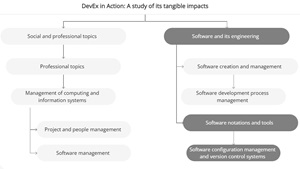News
Microsoft: Study Proves Investing in 'DevEx' Pays Off
Microsoft says organizational focus on improving the overall developer experience -- as opposed to traditional developer productivity/velocity measurements -- pays off, according to new research.
Sure, productivity is a worthy goal, but it can come with "negative consequences like burnout, mistakes and decreased retention," the company said today (Jan. 23) in a post on its Azure site announcing the research paper, "DevEx in Action: A Study of Its Tangible Impacts."
The paper stems from a joint venture with GitHub, which Microsoft owns, to explore the benefits of improving the developer experience via the Developer Experience Lab research initiative.
 [Click on image for larger view.] DevExLab (source: Microsoft).
[Click on image for larger view.] DevExLab (source: Microsoft).
"We saw this play out globally during the pandemic which led us to a revelation: the best way to help developers achieve more is not by expecting more, but by improving their experience," said Nicole Forsgren, Partner Research Manager, in discussing those negative consequences. For the research, Microsoft partnered with DX, which offers a developer experience platform.
Citing positive impacts on three levels (individual, team and organization), Forsgren said: "At a high-level, our results are promising. Our research model investigated how flow state, feedback loops, and cognitive load impacted developer, team, and organizational outcomes. There's strong support for the positive impact of flow state and low cognitive load on individual, team, and organization outcomes. We also found that feedback loops -- which in our study focused on the speed of answering questions and completing code reviews -- have positive impacts at the team level."
 [Click on image for larger view.] Tangible Impacts (source: Microsoft).
[Click on image for larger view.] Tangible Impacts (source: Microsoft).
She offered some teasers to read the research paper:
- Flow state: Developers who had a significant amount of time carved out for deep work felt 50 percent more productive, compared to those without dedicated time.
- Cognitive load: Developers who report a high degree of understanding with the code they work with feel 42 percent more productive than those who report low to no understanding.
- Feedback loops: Developers who report fast code review turnaround times feel 20 percent more innovative compared to developers who report slow turnaround times.
"Our findings are clear -- improving and measuring developer experience is worth the effort," she said. "It will lead to happier and more productive developers, stronger teams, and more successful organizations."
The abstract for the research paper reads:
DevEx (developer experience) is garnering increased attention at many software organizations as leaders seek to optimize software delivery amid the backdrop of fiscal tightening and transformational technologies such as AI. Intuitively, there is acceptance among technical leaders that good developer experience enables more effective software delivery and developer happiness. Yet, at many organizations, proposed initiatives and investments to improve DevEx struggle to get buy-in as business stakeholders question the value proposition of improvements.
The paper details research on topics pertinent to measuring DevEx including:
- Perceptual measures vs. workflows
- The importance of KPIS (key performance indicators)
- Design surveys carefully
- Break down results by team and persona
- Compare results against benchmarks
- Mix in transactional surveys
- Avoid survey fatigue
It also provides real-world examples featuring eBay and Pfizer to illustrate how attention to DevEx provides productivity gains.
Authors include Forsgren, Abi Noda, Margaret-Anne Storey and Michaela Greiler.
"We hope that this new research will prove valuable for people looking for actionable insights to improve their DevEx, as well as those advocating for DevEx investments within their organizations," Forsgren said in conclusion. "In our paper, we provide a roadmap for pursuing such investments. By collecting DevEx data, setting and communicating clear goals, sharing progress, and repeating this process, organizations can make informed decisions to continually enhance their developer experience."
About the Author
David Ramel is an editor and writer at Converge 360.